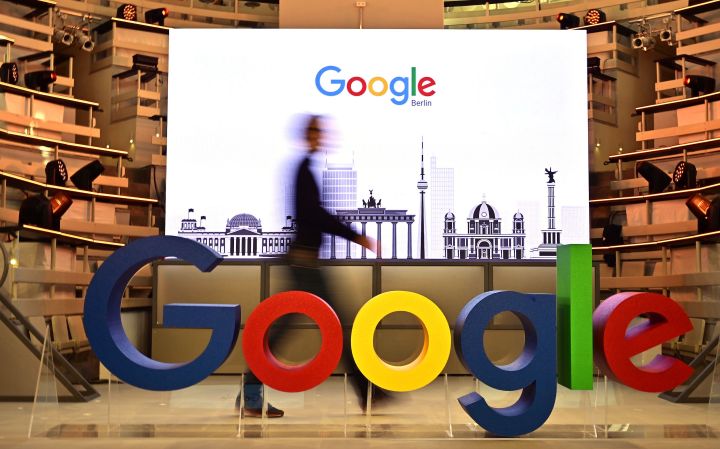
The Google antitrust case raises the question, why don’t we change our tech default settings?
The Google antitrust case raises the question, why don’t we change our tech default settings?

We are in Month 2 of what some tech experts have called the most important antitrust trial of the 21st century: United States v. Google LLC.
The federal government’s case essentially rests on one word: “default.” In the tech context, the word refers to preset options that users can change but often don’t. The Department of Justice says Google has paid iPhone maker Apple and other companies billions of dollars annually to be the default search engine on their devices because defaults keep out competition.
Google argues it’s just made a better product, and if consumers really want to use some other search engine, nothing’s stopping them.
The power of defaults is nothing new to Jared Spool, who has been trying to design more user-friendly tech since the late 1970s.
If you’re still using a full-size keyboard, you may be familiar with one of his claims to fame.
“I was on the team that invented those six buttons that are above the arrow keys,” said Spool, who now runs a tech-design consulting firm called Center Centre focused on the user experience.
In his nearly half-century in the business, he said, users have always been loath to change default settings. Even when the defaults make no sense.
He remembers when Autosave in Microsoft Word was turned off by default.
“People would memorize the shortcut for saving,” Spool said, referring to the PC keyboard shortcut Ctrl-S. “And they would develop that just as a knee-jerk reaction.” In other words, type-and-hit-Ctrl-S became a habit.
Behavioral economists have been talking about the power of defaults for decades. But Spool said with default settings in hardware or software, fear is more often at play than simple inertia.
“Because there was sometime in the past where you changed a setting, and then everything broke and you couldn’t connect why it wasn’t working to the fact that you changed the setting,” Spool said. “And so it’s scary to change those settings.”
And even if you are willing to confront those fears, if those defaults make tech companies money, they won’t make it very intuitive to play with them.
“It’s sort of like going into someone’s house and they tell you to help yourself to a glass of water,” said Spool. “And you open up the cabinet that seems logical to you, and there aren’t any glasses. So you open up the next one, you open up the next one.”
Google pays billions of dollars annually for default status partly because that consumer inertia makes its search engine better at returning the right results.
“They have created … a feedback loop where they get users and more ads and more data and better search, and it has locked every competitor out,” said Katie Van Dyck, senior counsel at the American Economic Liberties Project, an anti-monopoly advocacy group.
It’s not just Van Dyck saying this. In a twist of antitrust irony, Microsoft CEO Satya Nadella testified essentially that Google is better at search than Microsoft Bing because of all the data it gets from being a default. Microsoft lost an antitrust case in the early 2000s over web browser defaults.
While the U.S. has been slow to interrupt the default search feedback loop, Europe has tried to regulate it.
“Google essentially lost the default issue in Europe,” Van Dyck said. “So when you get your new phone or you get your new laptop and you take it out of the box and turn it on the first time, you are given a menu of search engines.”
The European Union applied that solution to phones that use Google’s Android operating system. So far the results are somewhat mixed.
“It turns out that most people still choose Google because we know that Google is the superior search engine at the moment,” said Steve Tadelis, who teaches tech economics at the University of California, Berkeley.
There’s a lot happening in the world. Through it all, Marketplace is here for you.
You rely on Marketplace to break down the world’s events and tell you how it affects you in a fact-based, approachable way. We rely on your financial support to keep making that possible.
Your donation today powers the independent journalism that you rely on. For just $5/month, you can help sustain Marketplace so we can keep reporting on the things that matter to you.











